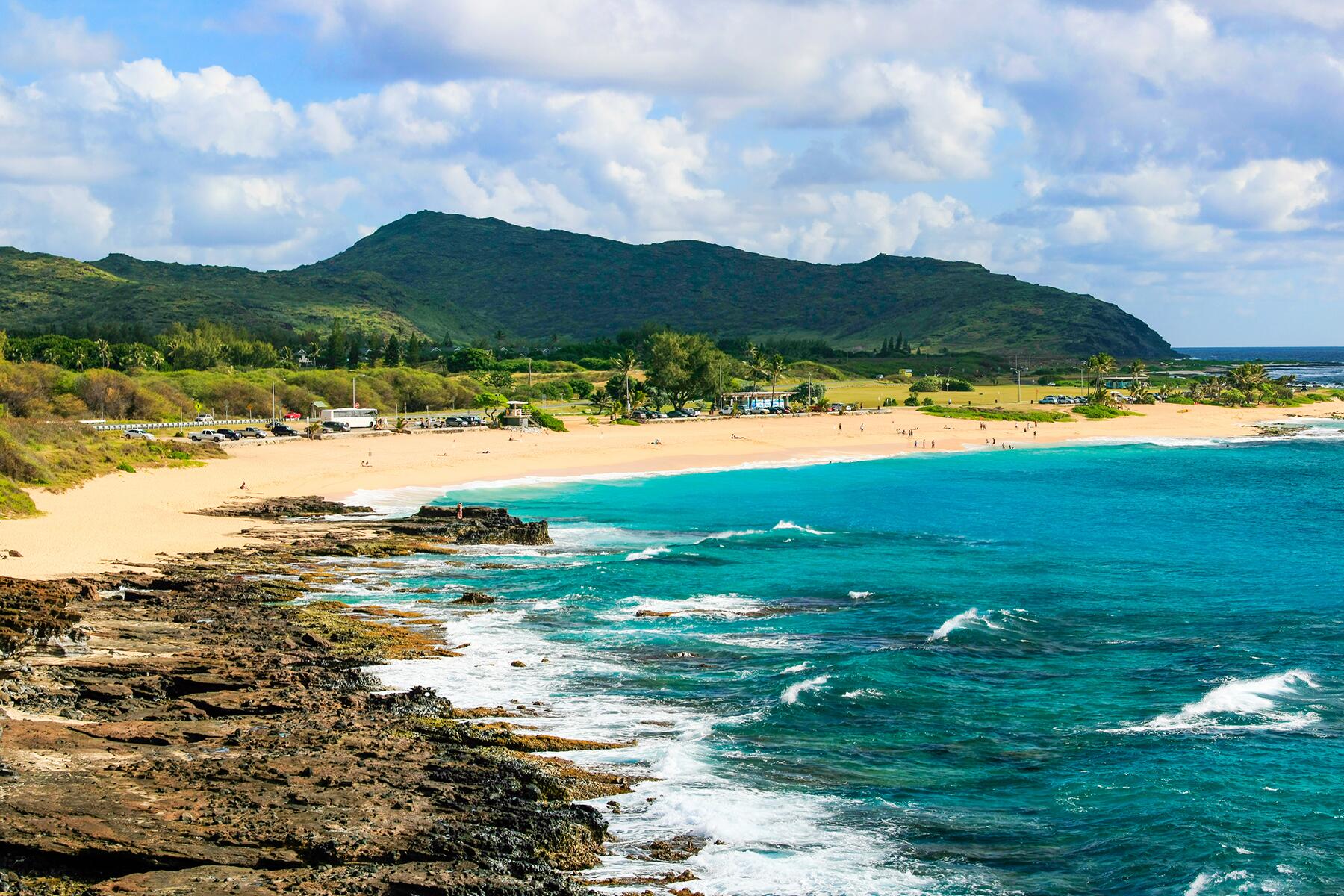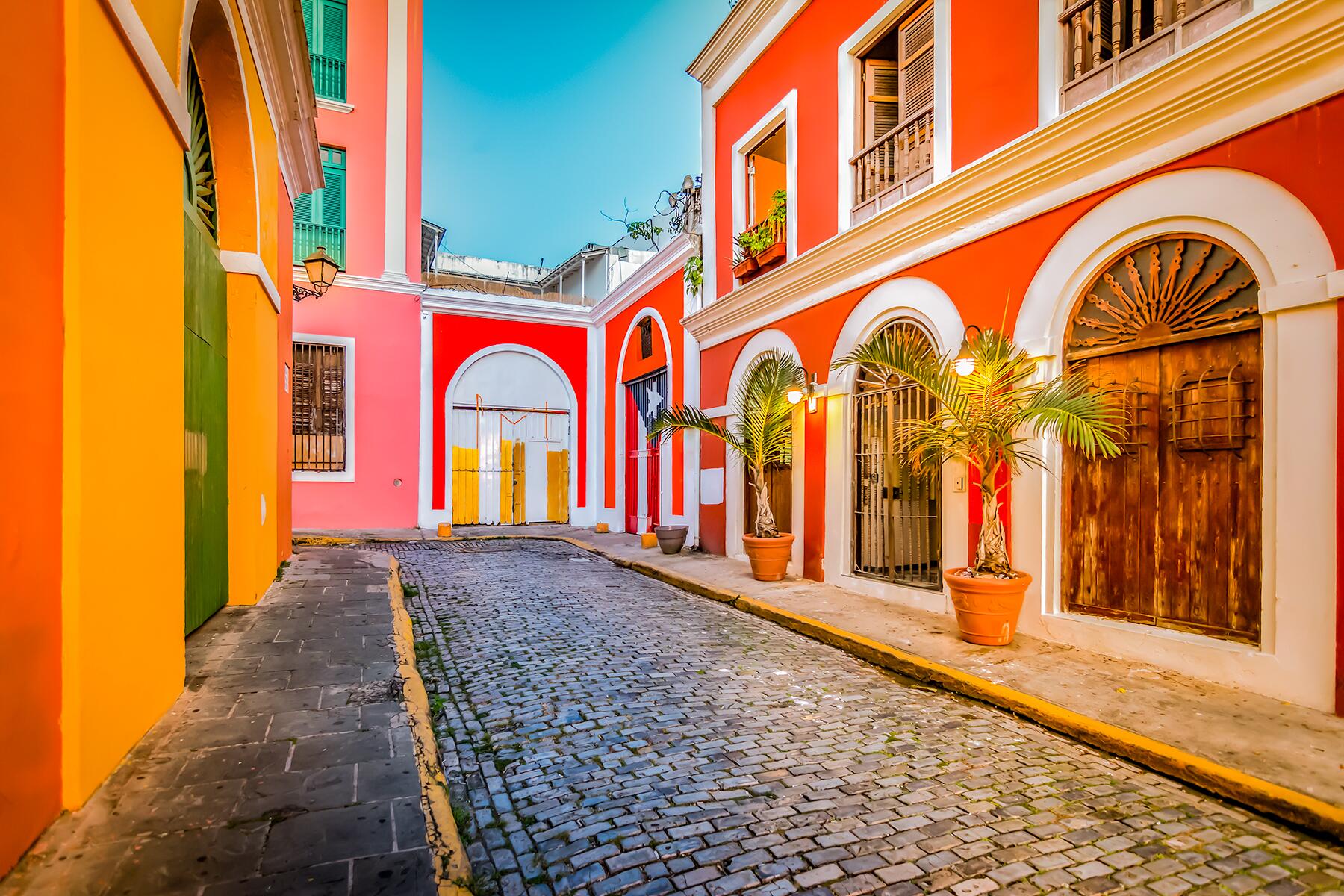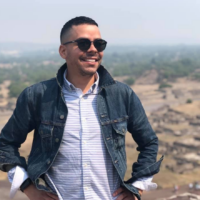Being rejected by my family in the U.S. led me to create a new one abroad.
Growing up in Puerto Rico and Florida, my identity has always been different. I was considered too gringo and dark on the island to be Puerto Rican. I was too dark and Latino on the mainland to be considered American. During my early academic years in Florida, people whom I didn’t know would approach me, asking if I spoke English. My response in a suburban accent would surprise them since my physical appearance didn’t fit my voice.
In later years, people in Puerto Rico would make fun of my Spanish accent because it sounded odd and not Puerto Rican enough. My emerging identity as a queer person further complicated this. My mannerisms were too feminine in both the U.S. and Puerto Rico, and by the time I was 14, the gay jokes within my own community began emerging.
“Sus plumas están cayendo” (his feathers are falling) would be a derogatory term I would constantly hear walking down the hallways in my old high school in Arecibo, Puerto Rico. I continually resisted the urge to do or say anything too feminine in school. It felt like everyone knew I was someone queer before I did, and my adolescent mind didn’t know how to process these sometimes traumatic events.
Often, queer BIPOC children have no support system within their families to confide in when these things happen, and I was no exception. When I graduated college in New York, I struggled to understand my identity and how my family perceived me. I would still dodge questions about potential girlfriends at family gatherings and shy away from any sexual topics, queer or otherwise.
Recommended Fodor’s Video
During the pandemic, things changed. I began a career as a travel writer, and my mind opened. I visited different countries and saw diverse cultures that were rich and beautiful. I could travel to places like Phuket, Thailand, and Mexico City, where queer families existed and thrived. I felt confident enough to tell myself and my family members that I was part of the LGBTQ+ community. That’s when I noticed something I began calling subliminal homophobia.
My immediate family would turn off anything queer-related on TV or in the media. When I mentioned any somewhat queer-related accomplishment, my family would nod their heads uncomfortably. Things became tense when I forced my mother to watch an episode of Love, Victor, a Hulu series that follows a Latino teen moving to a new town and discovering his identity. As we began watching the episode, my mother’s eyes were glued to the TV. Her body would wince when anything horrible happened to the main character, and I felt like she finally understood my identity as a queer Latino man. Suddenly, my then 10-year-old nephew walked into the darkened living room. The TV screen created a soft glow around him as he peered at the screen and innocently asked, “What are you watching?”.
My mother propped up, startled, and lunged with the speed of a cheetah toward the remote control. She shut off the TV and told my nephew we weren’t watching anything. This moment made me realize that my identity was okay as long as it was on TV, but they wanted nothing to do with it the minute it came home. Love, Victor is PG-13 and has fewer traumatizing scenes than any Star Wars movie. At this point in life, I was planning a move to Barcelona, Spain, and desperately needed to separate myself from these toxic events with my family. Arriving in Spain, I was enchanted by Catalan culture and architecture and would often visit museums like the Barcelona Museum of Contemporary Art and Casa Vicens Gaudí.
I had no contact with my family for the first six months. I felt a pressure lifted from my shoulders. I was free to be myself without hiding any aspect of my identity, and I began forming a community of friends that accepted me. Things weren’t perfect, but I finally felt free, and Florida and Puerto Rico felt like a distant, albeit painful, memory. During the holidays, the idea of heading back home would make me cringe. I felt like a bird resisting the urge to migrate because it loved its space too much. The idea of seeing my aging grandmother and the few relatives that I felt comfortable with pushed me to travel back west. I could see my grandmother, wave distantly to my mother and spend time with family members who understood my identity. Things were tense, but everything was fine.
That’s when I heard about the family reunion.
Left Out of My Own Family Reunion
In passing, a cousin mentioned they were soon collecting money for a family reunion. When asked, my cousin was surprised when she learned my mother hadn’t invited me. They were all set to meet in March in Orlando, Florida. Cousins and relatives from Puerto Rico, New Jersey, and New York were all gathering to celebrate each other, and I was omitted. I suspected this was due to my outspoken identity as a queer man. While initially shocked, I began to feel a pain in the pit of my stomach. The feelings of the nervous teenager who was trying really hard to not be noticed for the wrong reasons began to emerge, and it felt like the divorce from my family was final.
Returning to Spain, I struggled with this thought and realized that, like other queers before me, creating your own family is part of the journey. Sitting in an outdoor plaza in my neighborhood, Grácia, I began noticing all the families around me. The parents sat at silver tables drinking wine and beer, and their children ran around them chasing pigeons or each other. The sun would shine, and the plaza would be filled with the noise of children’s laughter and adults speaking Spanish or Catalan. At that moment, I realized I wanted to become a parent. I had no idea how that could happen, but the urge to be one of the parents sitting on outdoor furniture while their children ran freely in the background became a thought I couldn’t shake. Becoming a queer parent would require more effort, but I felt like I was ready (almost).
A Decision to Build My Own Family
Any single person can adopt in Spain, including LGBTQ+ single folks. Surrogacy is banned nationwide, but surrogacy done outside the country will be recognized. According to some sources, adoption prices can range from $12,000 to $20,000 and take up to eight to 20 months for the entire process. Surrogacy can be a faster option but can cost up to $130,000, depending on the circumstance.
Organizations like GWK (Gays With Kids) offer information and support for LGBTQ+ would-be parents. Being a parent is complicated, and it can take a whole aldea (village) to do it. But I now know this is a journey I’m ready to take. The next time there is a family reunion, it will be my own and consist of my friends, neighbors, and, one day, a little one that calls me papá.





